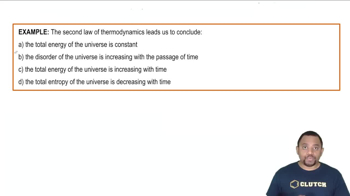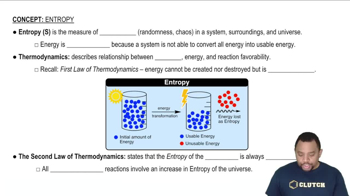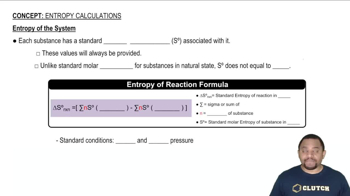Textbook Question
Which state in each of the following pairs has the higher entropy per mole of substance? (d) Water vapor at 150 °C and 1 atm or water vapor at 100 °C and 2 atm

 McMurry 8th Edition
McMurry 8th Edition Ch.18 - Thermodynamics: Entropy, Free Energy & Equilibrium
Ch.18 - Thermodynamics: Entropy, Free Energy & Equilibrium Problem 68
Problem 68 Verified step by step guidance
Verified step by step guidance


Which state in each of the following pairs has the higher entropy per mole of substance? (d) Water vapor at 150 °C and 1 atm or water vapor at 100 °C and 2 atm